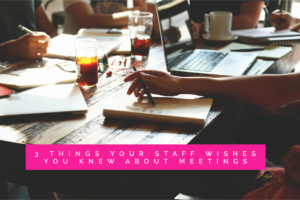I met a woman last week at a conference who told me she loved what she did everyday but hated her job because her boss was mean. She hopes he finds a new job soon because she doesn’t want to leave because once you remove him from the equation she said, “everything balances out.” Research proves the most important relationship, or “social connection,” we have on the job is with our immediate supervisor. And no one wants to report to a jerk. At least no one I know.
A lot of managers think they have to be tough with their teams to show they are real leaders. That’s such a bunch of BS and more importantly, it is not as effective as being a kind leader. Being a compassionate and empathetic boss helps with employee retention and productivity and the statistics prove it.
In fact senior level managers who are mean to the middle managers reporting to them can cause the front line employees to leave the company, even if they have no contact with the senior managers! This data comes from the team at Vanderbilt Owen Graduate School of Management, the School of Labor and Employment Relations at the University of Illinois at Urbana-Champaign, and Cornell University School of Hotel Administration who did a study that was published in 2015.
Management who lead their teams with kindness gain significant advantages according to the American Management Association who found that 84 percent of people who said they work for a kind boss planned to stay at the company “for a long time.” Among those who declared their bosses to be not so kind, only 47 percent planned to stay for an extended period.
Kindness is not that hard and it helps to create a work environment that people won’t dread come Monday morning. Here are 3 easy ways to incorporate a little more kindness into your workday:
1. Greet people daily and use their name
Acknowledge your colleagues daily by greeting them and using their name. Having a personal interaction makes people feel seen and heard.
2. Be an encourager
Stating a positive attribute or accomplishment about a coworker to them or encouraging them in front of their manager or company leadership is a great way to be kind at work. Remember it has to be real and genuine, not sucking up or throwing backhand shade.
3. Don’t be the office critic
Focus on people’s strengths, not their weaknesses.
4. Offer to assist
This might take some of your time and effort, but it’s a great way to establish rapport with a colleague and to show you care about the team. I suggest being specific about what you’re willing to do. You don’t want to get stuck doing someone else’s project.
In my experience kindness at work really pays off. Have you found kindness to be a wise business strategy for building teams at work?






